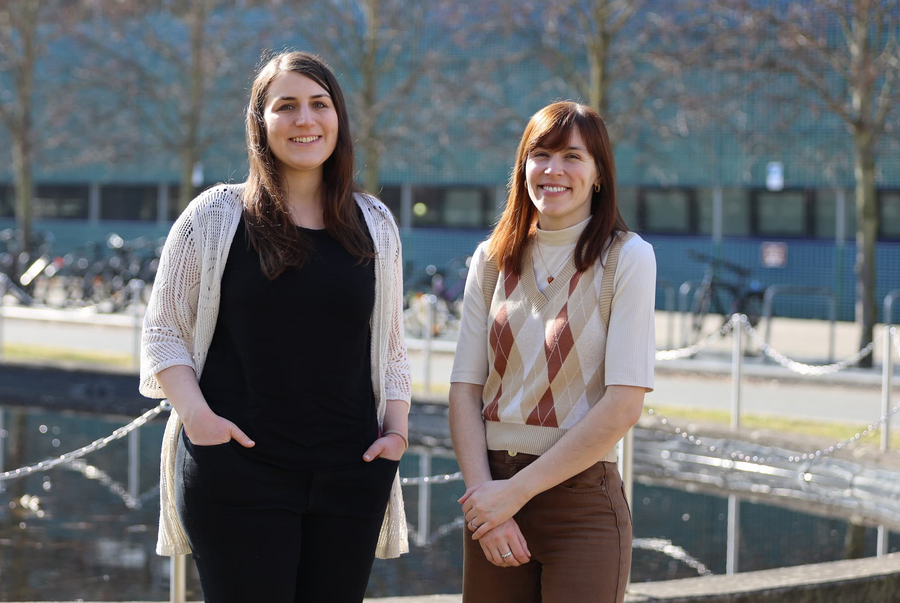
Alexandra Schauer (left) and Krista Briedis (right) © Katrin Boes / MPI-CBG
Two postdoctoral researchers at the Max Planck Institute of Molecular Cell Biology and Genetics (MPI-CBG) received EMBO postdoctoral fellowships funding their research for up to two years. Alexandra Schauer, a post-doc in the research group of Jesse Veenvliet, was awarded the fellowship for her project, “Robustness and buffering mechanisms of lineage trajectories towards signaling variations.” Krista Briedis Gert, who works in the research group of Claudia Gerri, will pursue her project “No morula, no problem: How the pre-implantation tenrec embryo breaks symmetry during the first cell fate decision.”
In her project, Krista wants to compare how the first cell fate decision happens in embryos of different mammalian lineages. During typical early mammalian development, blastomeres (cells produced by the division of the fertilized egg) specialize at the morula stage, becoming progenitors of either the placenta or the fetus. This process, driven by cell position, polarity, and gene activity, has been mostly studied in mice and related mammals. “Afrotherian species like the tenrec, a mammal endemic to Madagascar, develop differently,” says Krista. “Embryos from these species form a central cavity early on without a morula stage. This means that the blastomeres don’t sort into inner or outer positions as they would in a morula. Using this unusual model, I will explore how tenrec embryos make the first cell fate decision without a morula using single-cell RNA sequencing and protein expression analyses. By comparing how this process happens across species, I hope to reveal both shared and unique mechanisms of mammalian development.”
Alexandra’s project will focus on how cell decisions remain stable during development. During cell lineage formation, cells respond to multiple signals to decide on their fate and shape. This process should be robust, even when conditions vary, to reduce the risk of, for example, developmental defects. We know that cells can follow different paths while reaching the same outcome, but relatively little about how much variation in the trajectory can be tolerated or how final decisions are kept on track. Alexandra explains, “I will use stem cell models to follow cell populations as they become more specialized. First, I’ll analyze such fate changes using live imaging and single-cell sequencing. Then, I am planning to test how changing external signals affects the cells’ paths and decisions. In a final step, I want to see if more complex environments can help a cell to stay on course for a specific fate.”
EMBO Postdoctoral Fellowships support excellent postdoctoral researchers throughout Europe and the world. International mobility is a key requirement. The fellowship includes a salary or stipend, a relocation allowance and support for fellows with children. Awardees can attend an EMBO Laboratory Leadership course and become part of the global network of EMBO Fellows.
Congratulations!